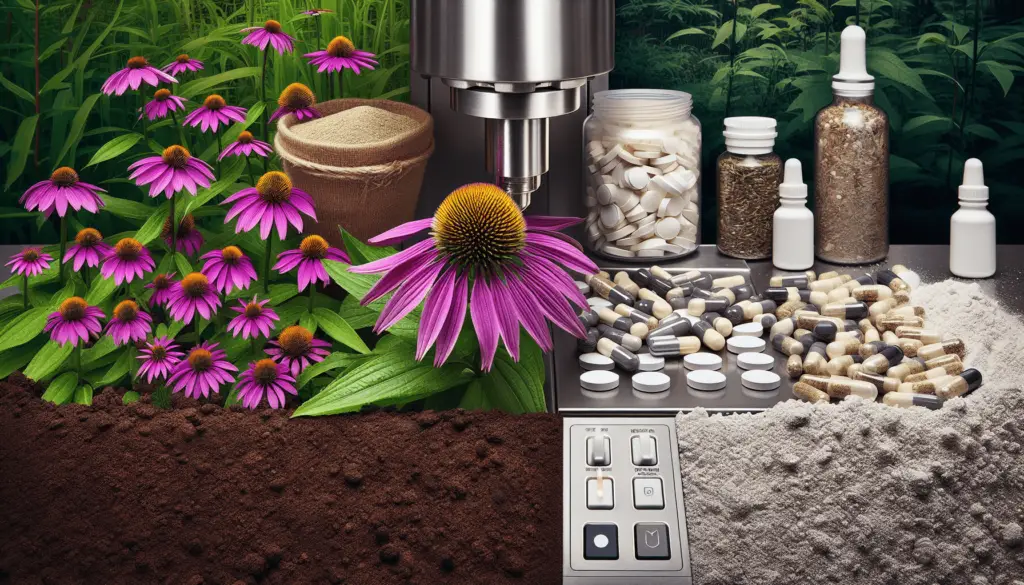Welcome to an exploration of the fascinating world of survival medicine, where we compare the effectiveness and benefits of natural remedies versus conventional medications. As you navigate through this article, you will discover the advantages and disadvantages of both approaches, helping you make informed decisions when it comes to your health and well-being in emergency situations. Whether you prefer the simplicity of herbal remedies or the reliability of prescription drugs, this article will provide valuable insights to help you in your journey towards optimal health and survival preparedness. Have you ever wondered about the differences between natural remedies and conventional medications when it comes to survival medicine? In a world where access to modern healthcare may not always be available, understanding how to use natural remedies can be invaluable. Let’s explore the benefits and drawbacks of both options so you can better prepare for any emergency situation.

The Basics: Natural Remedies and Conventional Medications
When it comes to survival medicine, there are two main approaches: natural remedies and conventional medications. Natural remedies are typically derived from plants, herbs, and other natural sources, while conventional medications are synthetic drugs created in a laboratory. Both options have their own set of benefits and drawbacks, so it’s essential to understand how each one works and when to use them in a survival situation.
Natural Remedies
Natural remedies have been used for centuries to treat various ailments and conditions. From herbal teas to essential oils, these remedies are often readily available in nature or can be easily made at home. One of the biggest advantages of natural remedies is their minimal side effects, making them a safer option for long-term use. Additionally, natural remedies are often more sustainable and eco-friendly compared to conventional medications.
Conventional Medications
Conventional medications, on the other hand, are typically prescribed by healthcare professionals and are widely available in pharmacies. These medications are highly regulated and undergo rigorous testing to ensure their safety and efficacy. While conventional medications can be more potent and fast-acting compared to natural remedies, they often come with a long list of side effects. Additionally, in a survival scenario where access to pharmacies may be limited, relying solely on conventional medications may not be sustainable.
When to Use Natural Remedies
Knowing when to use natural remedies can be crucial in a survival situation. While natural remedies are generally safe to use, it’s essential to understand their limitations and when they may not be the best option. Here are some common scenarios where natural remedies can be beneficial:
Minor Ailments
For minor ailments such as headaches, indigestion, or mild cuts and bruises, natural remedies can be highly effective. Herbal teas, essential oils, and natural ointments can help alleviate symptoms without the risk of side effects commonly associated with conventional medications.
Long-Term Use
In a survival scenario where access to medical care may be limited, natural remedies can be a sustainable option for long-term use. Many natural remedies have antioxidant and anti-inflammatory properties that can support overall health and well-being without the risk of dependency.
Environmental Concerns
Using natural remedies in a survival situation can also be more environmentally friendly compared to conventional medications. By utilizing plants and herbs found in nature, you can reduce your carbon footprint and minimize the impact on the environment.

When to Use Conventional Medications
While natural remedies have their place in survival medicine, there are times when conventional medications may be necessary. Understanding when to use conventional medications can help you make informed decisions in emergency situations. Here are some scenarios where conventional medications may be preferred:
Emergency Situations
In life-threatening emergencies such as severe allergic reactions, heart attacks, or infections, conventional medications may be needed to provide immediate relief and prevent further complications. In these situations, the fast-acting nature of conventional medications can make a life-saving difference.
Specific Conditions
Certain medical conditions may require prescription medications to manage symptoms effectively. Chronic conditions such as diabetes, high blood pressure, or asthma may require the use of conventional medications to regulate the body’s functions and prevent serious complications.
Limited Resources
In a survival scenario where access to natural remedies may be limited, having a supply of conventional medications can be crucial. Stocking up on essential medications such as pain relievers, antibiotics, and antihistamines can help you prepare for unexpected emergencies.
Making Informed Decisions
Whether you choose to rely on natural remedies or conventional medications in survival medicine, the most important thing is to make informed decisions based on your specific needs and circumstances. Understanding the benefits and drawbacks of each option can help you create a well-rounded survival medicine kit that meets your unique requirements.
Balancing Natural Remedies and Conventional Medications
One approach to survival medicine is to strike a balance between natural remedies and conventional medications. By incorporating both options into your emergency preparedness plan, you can maximize the benefits of each while minimizing the drawbacks. Consider creating a comprehensive first aid kit that includes a mix of natural remedies and conventional medications to cover a wide range of potential health concerns.
Seeking Professional Advice
When it comes to using natural remedies and conventional medications in survival medicine, seeking professional advice is always recommended. Consulting with a healthcare provider or a trained herbalist can help you make informed decisions about which remedies or medications are best suited for your individual needs. Additionally, they can provide guidance on proper dosages, administration methods, and potential interactions with other treatments.
Experimenting Safely
If you’re new to using natural remedies in survival medicine, start by experimenting with small doses and observing how your body responds. Keep in mind that not all natural remedies are suitable for everyone, and some individuals may be allergic or sensitive to certain plants or herbs. By taking a cautious approach and gradually introducing natural remedies into your routine, you can better understand their effects and benefits.
Conclusion
In the world of survival medicine, the choice between natural remedies and conventional medications is not always clear-cut. Both options have their strengths and weaknesses, and the key is to understand how to use them effectively in different situations. By being informed, prepared, and adaptable, you can create a well-rounded approach to survival medicine that can help you navigate emergencies with confidence. Remember, the best medicine is the one that works best for you in the moment.
